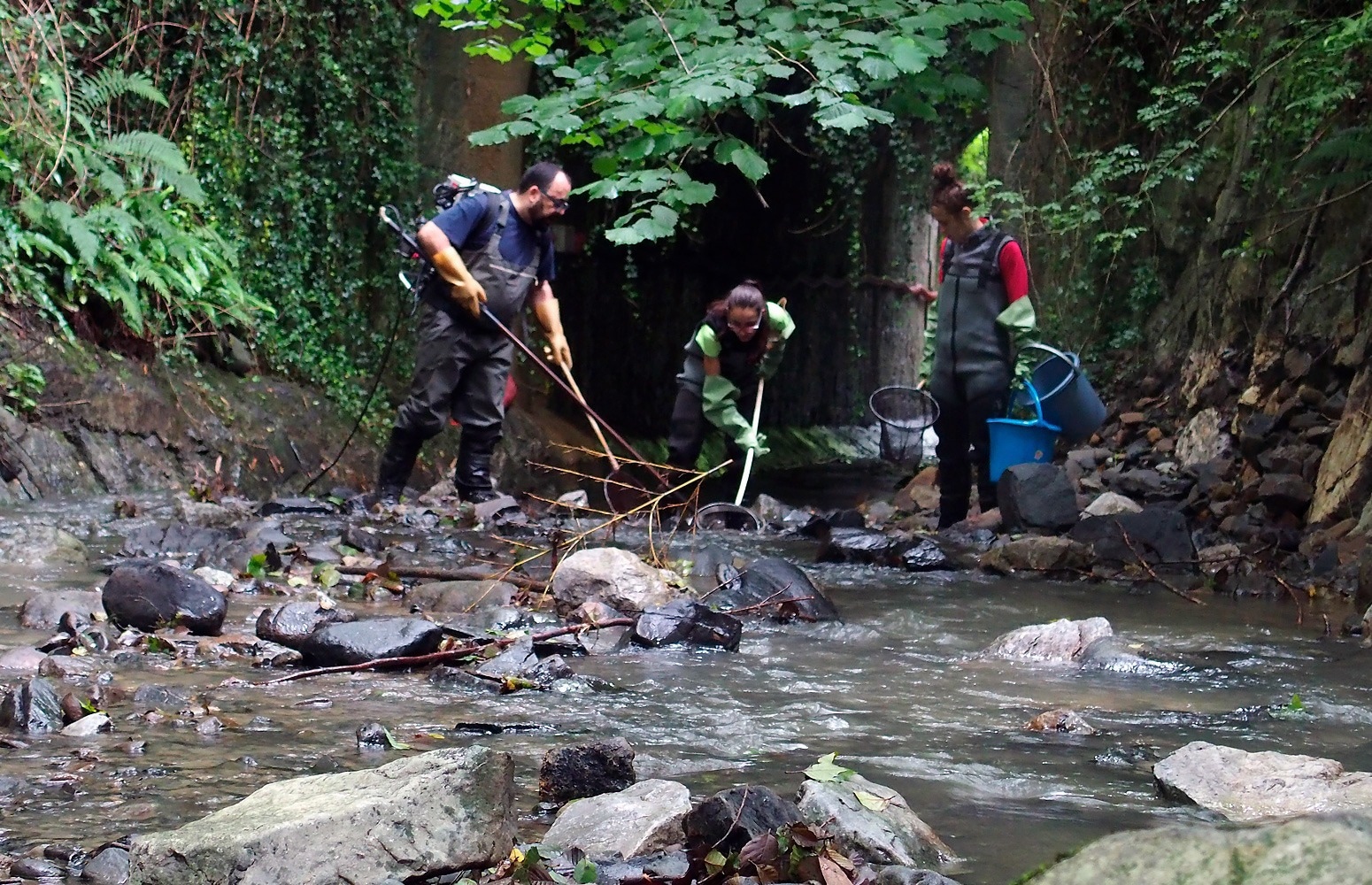A study conducted by the University of the Basque Country (UPV/EHU) emphasizes the urgency of enhancing efforts in treating polluted water to safeguard aquatic diversity.
 Images of various moments of the experiment carried out by the UPV/EHU's Stream Ecology group. Image Credit: University of the Basque Country
Images of various moments of the experiment carried out by the UPV/EHU's Stream Ecology group. Image Credit: University of the Basque Country
An experiment conducted by the Stream Ecology group, using water from a major wastewater treatment plant, has revealed that even though this water undergoes proper treatment and significant dilution before being discharged, it still has a lasting impact on river diversity and the trophic web (food web). This research suggests that the existing regulations and wastewater treatment methods may not be adequate to safeguard the natural dynamics of food webs in aquatic ecosystems.
Wastewater treatment plants have made significant strides in enhancing water quality on a global scale by substantially reducing the influx of pollutants into aquatic ecosystems, thanks to stringent environmental regulations.
However, it is essential to acknowledge that despite the thorough treatment processes at these plants, they still release an intricate mixture of pollutants, nutrients, and pathogens into the environment. These environmental impacts, which may be obscured by other contributing factors, can often go unnoticed.
More advanced WWTPs have implemented additional processes to further diminish the levels of nutrients, organic matter, and metals in sewage. Nonetheless, even when these treated wastewater discharges are highly diluted, they can still exert subtle but persistent effects if they continue over an extended period.
To study the effects of these plants properly, we designed an innovative experiment that allowed us to handle the entire ecosystem over several years.
Ioar de Guzmán, Researcher, Stream Ecology, University of the Basque Country
Various variables were monitored for a year within two specific sections of an unpolluted stream. This was done to assess the distinctions between these stream reaches.
“That way we knew how these stream variables changed depending on time and place,” she adds.
Subsequently, in the following phase, water from a wastewater treatment plant, which had undergone proper treatment and significant dilution, was redirected into one of these downstream stream sections, “we took measurements over the period of another year in both reaches to see what changes had been brought about by these discharges on the diversity of the stream and on the trophic network (group of organisms organized by food relationships) and on the functioning of the ecosystem.”
Significant Changes in the Ecosystem
The research demonstrated that treated wastewater, even when discharged in a highly diluted form, can have notable impacts on the ecosystem. It can influence the composition and operation of stream communities, despite the fact that the effluent was determined to have low toxicity, “in general, invertebrate diversity was reduced and communities became more heterogeneous; the amount of algae and herbivory (or tendency to feed on plants) increased,” details the researcher.
Despite wastewater treatment, specific nutrients that promote the growth of algae and organic matter still find their way into the stream. Simultaneously, pollutants from the treated wastewater can result in the decline of delicate invertebrates, replaced by more resilient species.
This underscores the fact that even with the advanced wastewater treatment methods in use today, freshwater ecosystems are still impacted. To preserve the balance and health of freshwater food webs, it becomes evident that there is a pressing need for more focused efforts in treating polluted waters.
We believe that by adhering to the limits stipulated by the legislation, the problems are reduced, but impacts are nevertheless generated; we must bear in mind that for an optimal conservation of the trophic networks of the streams, these treatments have to be even more stringent.
Ioar de Guzmán, Researcher, Stream Ecology, University of the Basque Country
Journal Reference:
de Guzman, I., et al. (2023). Treated and highly diluted, but wastewater still impacts diversity and energy fluxes of freshwater food webs. Journal of Environmental Management. doi.org/10.1016/j.jenvman.2023.118510.
Source: https://www.ehu.eus/en